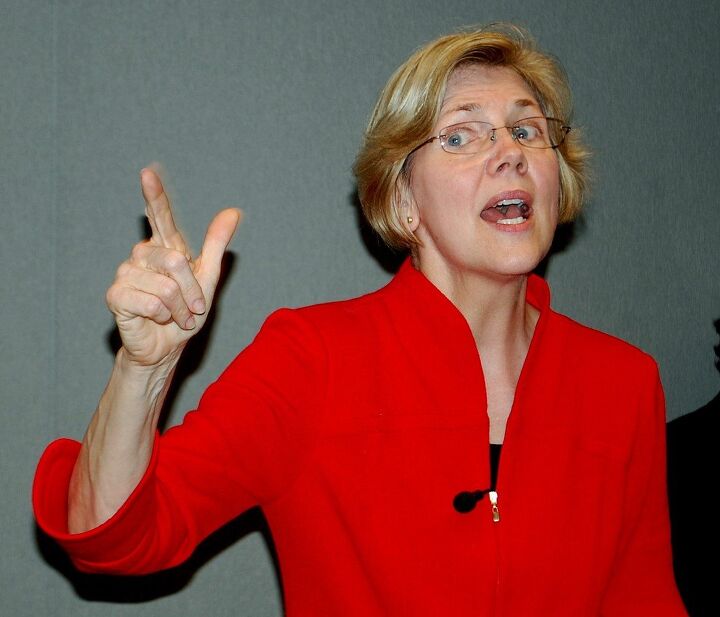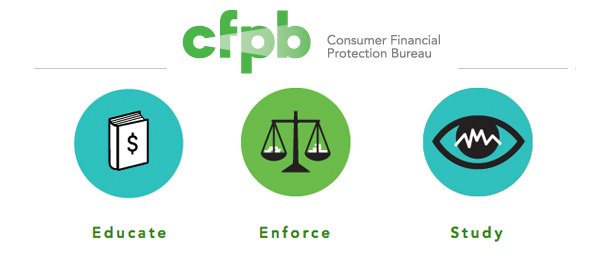#CarLoans
Car Loans Get Longer, Rental Vehicles Get Older
While nobody needs to tell you that the economy isn’t in good health, we should at least hip you to the latest automotive trends relating to the financial purgatory we’re currently living through. Ford sent a memo to dealers last week indicating that it would be removing the minimum FICO requirement for 84-month financing, indicating that the industry may soon normalize auto loans that are even longer than the 72-month whoppers that have grown in popularity over the last several years.
Meanwhile, those needing a vehicle intermittently will find that rental rates have not been declining as hoped. Despite analysts previously suggesting that auto pricing may stabilize through the fall, we now look to be going into the holidays facing familiar high-priced troubles — and there’s really no reason to think that’s going to change after 2022 gets here.
Subprime Auto Market Looking Extra Rough in 2021
The subprime auto market looks to be in poor health as the number of borrowers with outstanding loans that are more than 60 days overdue continues increasing. While the number has a tendency to rise and fall between seasons, the general trend toward indebtedness has been going up since 2015, with increasingly more customers boasting lackluster credit scores becoming incapable of footing their transportation bill.
Delinquencies skyrocketed in 2020, as government lockdowns pushed many out of work and now appear to be increasing due to a recovery plan that primarily seems to be serving cooperate interests and the wealthiest socioeconomic classes. Though it should be said that middle and lower-class families had been losing ground for decades, at least according to the latest Pew Research data. Pandemic-related complications only served to accelerate the existing financial disparities on all fronts. We are now on course for poorer people to have even less money moving forward, especially in the world’s most developed countries.
I wonder why so many people are defaulting on their car loans…
Hide Your Kicks, Hide Your Wife: Nissan's Credit Branch in Hot Water Over Illegal Repossessions
Nissan’s credit arm landed in some big trouble this week. It turned out that there are literally some rules around repossessing a car from a consumer. Apparently Nissan Motor Acceptance Corp. didn’t read those rules, and now they’ll have to pony up.
Report: Subprime Buyers Not Paying Auto Loans
As the resulting complications of coronavirus lockdowns obliterate the economy, reports have emerged that subprime car buyers are beginning to skip payments. Delinquencies were expected to come up a bit this year, even before local governments started issuing lockdown orders, but the swift economic impact of these health initiatives have proven wider-reaching than anyone anticipated.
Normally, the status of the more volatile subprime market is a useful tool in assessing the financial well-being of the country as a whole — sort of an early warning device for economists. However, getting an accurate read on who stopped paying could be hard during the pandemic. Many lenders are offering deferral programs to keep one or two delinquent payments from turning into full-blown defaults. Still, the initial signs are about what you’d expect, and it plants another economic red flag into American soil.
Not Everyone Drove Away With a Low-interest Loan in March
We told you yesterday how zero-interest financing exploded in popularity in the final two weeks of March, as governments everywhere belatedly clamped down and automakers had to pull out all the stops to lure frightened buyers out of their homes. Despite many would-be buyers not taking the bait, for some, zero-percent/84-month loans proved as irresistible as topless pics of a young starlet on the beach.
At the same time, drivers who stood no chance of netting that coveted no-interest loan were also headed to dealers.
As Interest Rates and New Vehicle Prices Rise, Loan Terms and Payments Reach for the Sky
Image, for a moment, that the trailer pictured above is filled with debt. It’s a good representation of the average new vehicle purchase.
Looking at last month’s stats, you’d have to go back to the safe and comfortable pre-Twitter era to find a January in which fewer people got their hands on a zero percent new vehicle loan. January 2006, to be exact.
Last month wasn’t just a departure from a decade past — the car buying landscape appeared quite different just a year ago, all thanks to rising interest rates and the perpetual upward creep of new car pricing. Data from Edmunds helps break down the differences.
Suffice it to say you’re likely paying a lot more, but you’re spreading it out over a longer term.
Bark's Bites: Regulators, Mount Up!
It pains me greatly, dear readers, to say what I’m about to say. Those of you who regularly follow my writing know how I lean when it comes to politics. However, given the current state of the auto dealership world, I have no choice. I gotta admit it — I agree with Elizabeth Warren on something.
Good ol’ P…er, Senator Warren and I both agree that there needs to be more oversight of the automotive lending business. Part of my day job is to educate new automotive advertising sales representatives about the car sales industry, and when I get to the part of the day where I tell them about how the Finance and Insurance office works, I always give them the following warning:
“Guys, if you don’t know about how car loans work, you’re about to get very, very angry.”
So I’ll give you the same warning, friends. I’m going to share about the predatory lending practices that go on behind the scenes, and I’ll tell you what I think should be done to stop it.
Wells Fargo Under Intense Investigation Following Auto Insurance Scandal
California’s insurance regulators have launched an investigation into Wells Fargo following the bank’s confession that it forced hundreds of thousands of auto loan borrowers to pay for insurance policies they didn’t need and, in many cases, were unaware of.
There’s also a congressional investigation underway, where U.S. senators are asking the company basic questions like who was affected, how broadly, whether they get a refund, and why the hell this occurred in the first place.
Unlike JPMorgan Chase or Bank of America, Wells Fargo’s auto loan contracts allowed the lender to obtain collateral protection insurance on a customer’s behalf if they failed to buy liability coverage themselves — or if the bank assumed they hadn’t. It’s not common practice and, when it causes paying customers to default and have their vehicle repossessed, it’s not difficult to see why.
Consumers Take a Bath on Rapidly Depreciating Trade-ins
The tsunami of pre-owned vehicles flooding dealer lots is great news for those seeking an affordable, low-wear used car, but the previous owners are taking a hit.
More than ever before, owners returning their vehicle for a trade-in are discovering their old car’s value sank faster than their ability to pay it off. New car buyers, take warning.
Borrowing Binge: Auto Loan Debt Hits a Record High
With memories of the 2008 financial meltdown still fresh, American consumers aren’t borrowing wildly anymore — except when it comes to cars and credit card purchases.
As of the end of June, car buyers racked up the highest auto loan debt in U.S. history — $1.1 trillion, according to a quarterly report from the Federal Reserve Bank of New York. Also on the rise? Credit risk.
Chevrolet Offers 14.7% APR Financing To "Well Qualified" Corvette Buyers
While perusing Chevy’s website to see if there is any color of the 2014 Corvette that actually makes the car look halfway decent, I came across the financing offer pictured above. And, no, I did not enter any personal info that would lead GM’s captive Ally Financial (or whoever the hell GMAC is now) to deem me only eligible for such a high interest rate. Just what is going on here?
The Continuing Saga Of The Consumer Financial Protection Bureau And Dealer Interest Rate Markup On Car Loans
It is no surprise that U.S. automobile dealers have been in a tizzy the past few months as the Consumer Financial Protection Bureau (CFPB) has been rattling its swords threatening to ban them from marking up interest rates on car loans, a sacred profit center for dealerships. Using methodology that assumes a person’s race can be determined by their last name and their gender by their first name, the CFPB claims that certain protected classes are being discriminated against in terms of being charged higher interest rates and thus the practice must stop.
What is a surprise is that Congress is equally annoyed with the agency’s strategy and lack of transparency, and recently announced new regulations limiting their power. No matter the outcome, there is a real possibility that the unintended consequences of the CFPB’s actions will be higher car loan rates for you.
Subprime Car Loans At Highest Level Since Before Recession
Subprime borrowers have accounted for more than 27% of new car and light truck loans this year, the highest level since 2007, according to Bloomberg. A year ago, a buyer with a credit ranking in the bottom percentile would not likely have been able to buy a car. This year people with credit stores as low as 500 or lower have qualified for loans.
After the Federal Reserve has kept interest rates near zero for five years now, the subprime car loan market is now being described as “frothy”. With interest rates so low, investors are willing to purchase the riskier bonds that back subprime car loans in pursuit of higher returns. A number of financial companies have entered that market. Citigroup reports that 13 loan backers have accessed the asset-backed market to fund subprime auto loans this year.
U.S. DoJ, Consumer Financial Protection Bureau Investigate Toyota, Honda, Other Automakers' Credit Arms For Lending Bias
According to regulatory filings by Toyota Motor Credit Corp., the giant automaker’s car financing arm, and American Honda Finance Corp., which fills a similar role for Honda, the United States Consumer Financial Protection Bureau and the Department of Justice are investigating major auto manufacturers for possible lending bias based on race, which would be a violation of the 1974 Equal Credit Opportunity Act. According to Bloomberg, the agencies are looking into how loans that the automakers’ credit companies provide to auto dealers are priced. Bloomberg reports that as many as seven car companies have been asked for data that may be related to the borrowers’ races and interest rates charged. Both government agencies declined to comment on the matter.




























Recent Comments